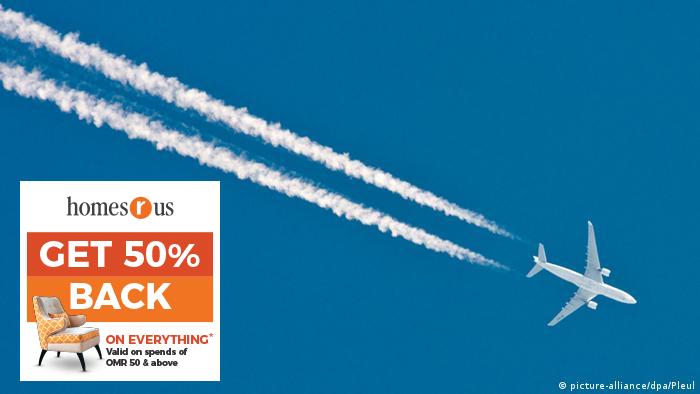
On the day that the International Air Transport Association (IATA) announced a commitment to reach "net zero" CO2 emissions by 2050, the nonprofit organization Atmosfair has opened the world's first plant to produce carbon-neutral jet fuel.
The group, which offers offsets for emissions from flights, announced Monday that its site in Emsland, in northern Germany, is expected to begin producing eight barrels (about 1 ton) of synthetic kerosene a day in early 2022. Atmosfair did not disclose how much the project cost or how it was funded.
Synthetic kerosene, also called e-kerosene or power-to-liquid (PtL), is seen as having huge potential to slash the aviation industry's carbon footprint. But there are a few reasons the green fuel hasn't taken off yet.
Flying is one of the most carbon-intensive ways to travel because planes are powered by fossil-based kerosene. The aviation sector is responsible for around 2 to 3% of global CO2 emissions, and it wants to reduce its footprint to half of 2005 levels by 2050. But decarbonization is going to be a huge challenge.
Why synthetic kerosene?
E-kerosene is a type of Sustainable Aviation Fuel (SAF) that can be blended with conventional jet fuel to bring down flight emissions.
SAFs are mainly biofuels made from sustainable feedstocks, such as waste products or agriculture residues. They're seen as a promising alternative because they can reduce emissions by up to 80% over the lifetime of the fuel compared to fossil kerosene.
The Atmosfair plant in Emsland is aiming to produce carbon-neutral synthetic kerosene by combining hydrogen generated by renewable electricity (from nearby wind turbines) and sustainable carbon dioxide — captured from the air and biomass.
The output is to be mixed with conventional kerosene and transported to Hamburg Airport to fuel flights, including those of German carrier Lufthansa.
Current engines can technically run on up to 50% sustainable fuel, but that's far from being a reality right now. SAF production is currently about 0.1% of the total aviation fuel consumed globally, according to the IATA.